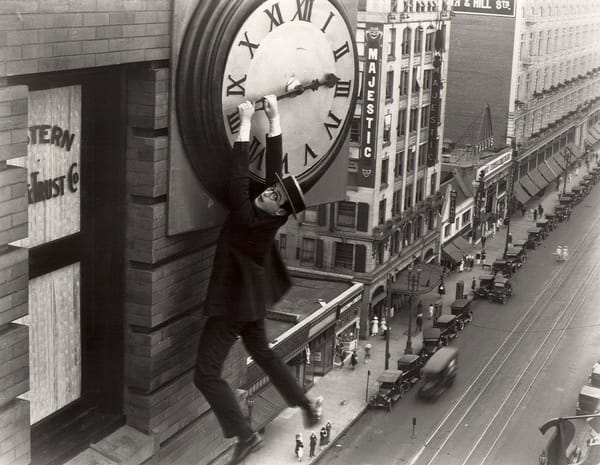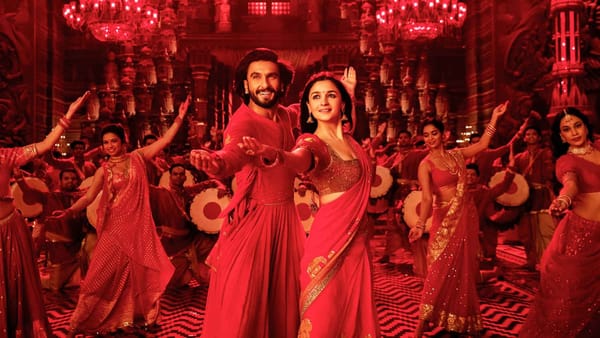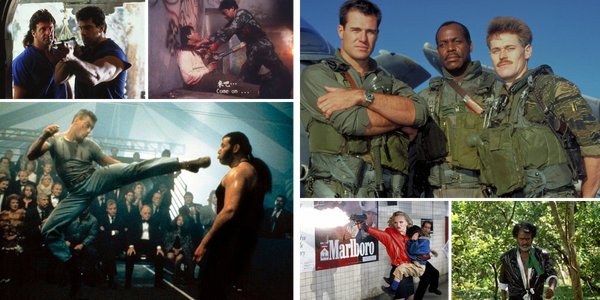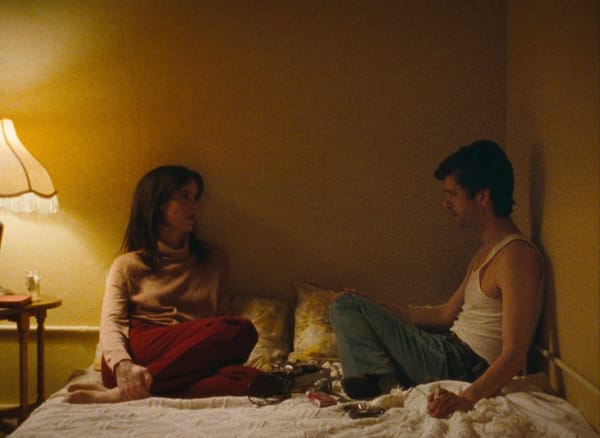Polygon Exit Interview: Nicole Clark, Culture Editor
“There was a very generative, creative spirit, and a curiosity and hunger for all sorts of cool stuff”
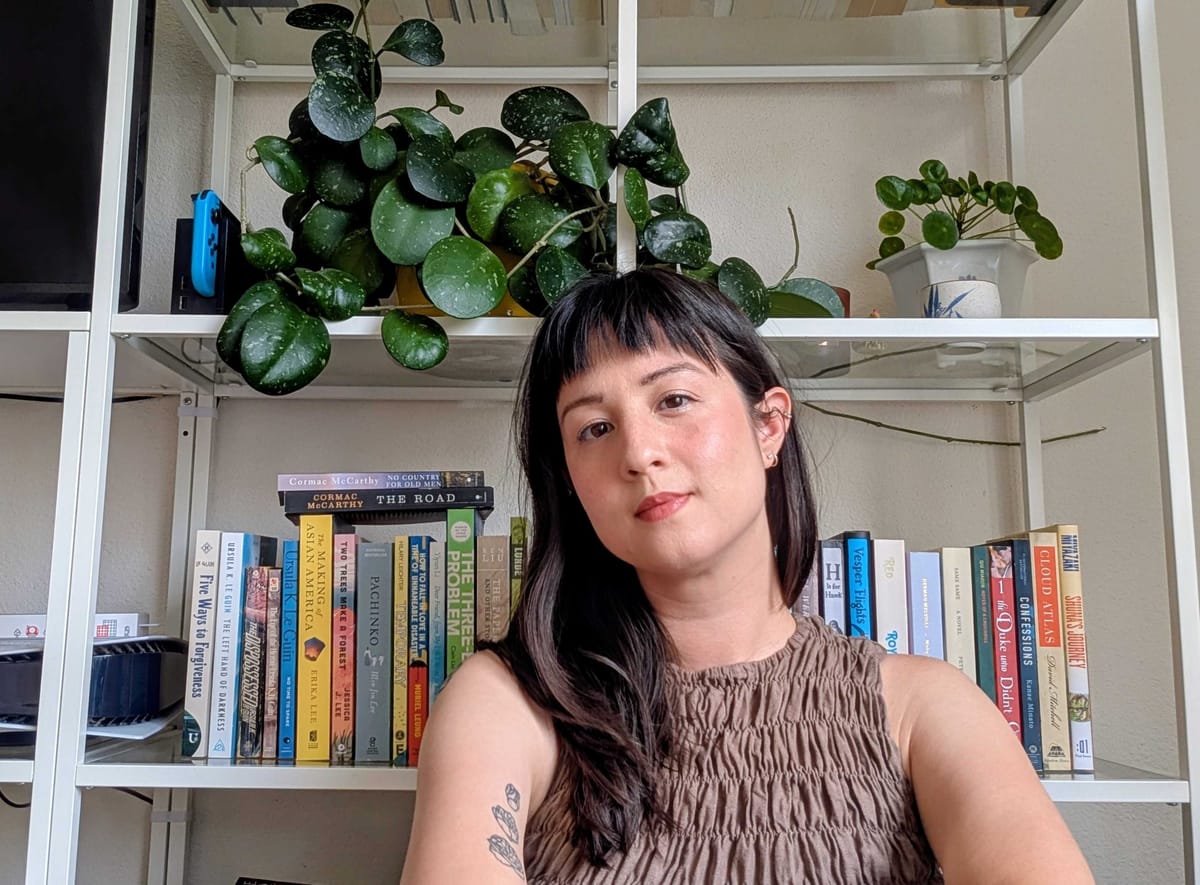
Welcome to Polygon Exit Interviews, a series of chats with my excellent former Polygon employees who were laid off (along with me) when Valnet purchased the website from Vox Media May 1. We’re talking about how these talented people got to Polygon, what they did in their time there, and what they hope is next.
Next up: Nicole Clark, an experienced writer and editor who ran Polygon’s culture section, which covered internet culture and the intersections of games, entertainment, and the real world. Her work can also be found in The New York Times, Salon, The San Francisco Chronicle, New York magazine, NBC Asian America, IGN, The Daily Beast, The Guardian, The Los Angeles Review of Books, and elsewhere. An avid reader, Nicole also helped lead Polygon’s book coverage, and is always reliable for fantastic book recommendations.
This interview has been lightly edited for length and clarity.

Tell me about your pre-Polygon background.
I always knew I wanted to be a writer, but I was always led to believe that writing was a hobby, not a career, so even though I studied English, I thought I was going to work in tech. Strangely, none of the tech companies wanted a recent grad with an English degree and no tech experience. I made myself a deal that if I could publish an article in the next four months, I would see if I could publish another article in the next few months. And that basically turned into this career.
It started with me finding this really cool local Bay Area outlet called The Bold Italic. And I can't believe I did this in hindsight, but I sent an email to the CEO, cc’ing the editor-in-chief, saying, Hey, do you want someone to be a freelance writer? I'm young and I might have a really fun perspective. I started writing articles for them, and then over the course of a couple of months, became a contributing editor and then a staff editor. We got to cover all sorts of stuff: comedy pieces about one-star Yelp ratings on the Golden Gate Bridge, really meaningful pieces about San Francisco Chinatown's oldest bakery and support groups for young women with breast cancer.
After that, I moved to LA and was a legal assistant at an immigration law firm for a while. Then I worked at Vice as a culture writer for a couple of years, doing all sorts of reporting. I was very fortunate that at the end of my time at Vice, I got to work with the original Waypoint crew a little bit. They are the loveliest people. Austin, Rob, Patrick, Cado, Natalie … They helped me edit my first-ever video game feature, which was a historical piece about Humongous Entertainment, who made Backyard Baseball. I remember thinking, Oh, maybe I can do this.
After that, I freelanced for a little while, and edited for Catapult. RIP Catapult, such a fantastic place to work. I have a lot of gratitude to Nicole Chung and Matt Ortile for taking a chance on someone who did not have a literary editing background, but who just loved what they published so much. I can't stress how much that influenced the editing I did at Polygon, so much so that when Polygon hired me, I actually had them carve out in my contract that I would still be allowed to do contributing editing at Catapult, because so many people published really beautiful work there. During that time period before Polygon, I was briefly a bookseller, which I think tracks. I love books.
What attracted you to Polygon?
I feel like I'm gonna age myself, but I remember reading Polygon in college. People have many opinions about BioShock Infinite, and I remember when the review of that game hit Polygon. I could not afford a gaming system at the time, but a lot of my friends had gaming systems, and I remember saving up money from my dining hall job to buy a copy of BioShock Infinite because of the Polygon review. We all swapped around the controller and played it communally, and I had such a positive experience with that. I remember thinking there aren't outlets where I feel like I'm reading this sort of coverage about games.
Over the years, I would always return to reading Polygon, to the point where I started recognizing people like Petrana [Radulovic]. Every time I read something Petrana had reviewed favorably, I was like I have to watch this. And then I started reading Karen Han's reviews. I have to watch that. And then I'm reading work from Austen [Goslin] on the game side. And then when Maddy [Myers] joined, I was like, Oh, I recognize this name. This is another person whose point of view I really, really respect and appreciate. So I was reading her, and then I was reading Nicole [Carpenter], and I was reading Ana [Diaz], and it got to the point where I realized everyone who I was getting my taste from worked at Polygon.
There was a very generative, creative spirit, and a curiosity and hunger for all sorts of cool stuff – not just games, but books, movies, sometimes podcasts, little indie games I would have never sought out.
What do you remember about first joining Polygon?
I was so overwhelmed. I'd never managed people before. I'd never run a section before, and the section they hired me to edit and lead had just been created. I was specifically managing writers whose work I was familiar with, and whose work I adored. My first meeting with the team, I asked them What pieces are you proudest of? What sort of work would you like to do more of? Because there's no desk without the people. The section always had to be guided by what the writers actually wanted to do. Cass [Marshall] had written the piece about Hayseed and Ana had just written these really fantastic pieces about the Barnes & Noble manga section and about the fat-shaming legacy of Wii Fit. Somehow, it was a perfect match, and that was exciting. It was a joy to think that I could create more of that with this team.
The business reality of running a video game site was extremely intense, because I knew that we would have to generate enough coverage to give writers the latitude to do more of that long-form work that they were interested in. The other thing I remember in the first week is meeting Maddy. I wonder if she'll hate me for sharing this, but when she hired me, she wrote, Excited to have you on the team and to be your question answerer from now and forever. And I'd never had a boss that was that supportive and funny and kind, and I do think so much of what we were able to do is because she was that kind of person, and I'm so grateful.
Can you run me through your history at Polygon – what roles you had, and what each entailed?
I started as the senior culture editor, so I was responsible for leading the section. But really the job was inventing what the section was, what it covered, and explaining to other people what that meant. I also had to write four to five articles a week, and was editing and managing Ana and Cass. I was editing contributions from outside my team, because to me, the best possible version of the desk is one where we have all sorts of strengths. And then I was also editing and managing freelance contributors. Even though it was not part of the job description, I really, really wanted to bring in more narrative features to Polygon. I also ran some packages.
About a year and a half into the job, I went from being a senior culture editor in the games desk to being my own desk. At that point, they added Nicole Carpenter to my team, which was a coup, just the most amazing thing. As a freelancer, she gave me so much advice. I had been working off of her freelance spreadsheet, and reading her fantastic labor reporting and investigative work. I got a bigger freelance budget. I got to launch bigger packages. I've never had a job like Polygon, where it really felt like as long as I met the goals, I could have creative freedom to pursue ideas and foster those ideas in others totally and then you.
In my last few months at Polygon, they decided to shutter the culture desk because things went in a different business direction. When you're an editor, you know that there's so much out of your control. And I think it was clear to everyone involved that the culture desk was really special, and I don't think there's anything we could have done differently. We just had a different mandate. So I was moved to curation writing, to do books coverage, which I always really loved. I did Polygon’s “Best sci-fi/fantasy books” lists every year, and then I got to work with Pete – don't edit this out! – I got to work with Pete, who was such a lovely colleague, and did really great work at the curation desk. My only regret is that I only got to do that job for like, two weeks before everyone was laid off.
I was really looking forward to working more together, too! What were you excited to work on with the curation team?
I was just so excited to work on the summer preview and to let people know about all of the fantastic sci-fi and fantasy books that were coming out. I love books, and I especially love debut and marginalized authors. It is so hard to debut successfully as an author, and I loved working with Sadie [Gennis] on those lists. We took great pains to make sure that there were books you might not see in the entryway table at your Barnes & Noble.
But the answer closest to my heart is a story I wanted to write called “I survived 2023 by reading manga with my feet.” I’m pretty sure the dek would have been “free feet pics,” and we had talked about pixelating images of my feet. One of my favorite styles of articles to write is the turducken. On the outside, you think you're getting something, and on the inside, you're getting a really, really beautiful, different cooked piece of meat. And in this case, the outside would have been reading manga with feet. But it would have actually been about disability and accessibility in games, and using the Xbox adaptive controller to enjoy hobbies that I really couldn't because I had terrible repetitive stress injuries that kept me from enjoying and participating in life, and realizing that just because I couldn't use one part of my body didn't mean that the tools that could help me didn't exist. I do feel like that sort of coverage is incredibly meaningful to people, and I know I've benefited immensely from the streamers out there who do accessible games coverage. For me, getting to read manga in the Libby app by tabbing through using the Xbox adaptive controller’s jumbo buttons with my toes was something I was really grateful for in a dark time.
I know Polygon would have let me publish it, and I don't know where else would. It's probably for the best that I never published that, because I don't want to make an OnlyFans.
Brag about yourself: what’s one thing you’re proud of from your time at Polygon?
I think I'm proudest of being an editor who cared about the collaborative process. I'm very proud of the number of times I had interactions with writers where they told me things like, Oh, this is what I was trying to say. Or, This is a story that I never thought I would be able to write. And not in the sense that they couldn't do it, but in the sense that their daily life is so busy. When you have this kind of daily number of news articles you're trying to write, you really have to work hard to defend someone's space to pursue longform work.
I am incredibly proud of getting to collaborate with Nicole Carpenter on her Barbie computer game story, which she won a video game journalism award for. Getting to talk to her every week as that piece developed, and hearing her excitement over pursuing leads, was infectious. It makes me so happy that she was rewarded with an award. But there are so many other examples of pieces that I'm so proud of having gotten to participate in the ideation and editing. Cass, for the longest time, wanted to write this really, really in-depth piece about Warhammer 40k. So many great jokes ended up in that piece, like We explain all forty thousand warhammers.
Also, I don't want to overstate credit, but I was so proud that we created a culture where Ana could see tons of young men going to see the new Minions movie in tuxedos and just do some on-the-ground reporting. And her passion for highlighting indie developers, which started out as a column, and then became more and more of a passion project as she was able to do more on-the-ground reporting and events coverage. That was really special, because those were not pieces that were really high traffic, which is, of course, one of the mandates of working in digital journalism, and we spent a lot of time thinking really hard about what was good for our audience, and these artists who we really cared about.
On a personal level, I'm actually much more proud of the editing I did than any of the writing I did. I really loved the narrative features I got to edit. There's a piece I worked on with Katie Okamoto, who I edited at Catapult as well, where she wrote about a Buffy fan community. The piece was really about how young women reckon with sexual assault as depicted in media, how women use media to form a community to heal from sexual assault, but then also to engage in really detailed craft discussions about how these sorts of subjects should be portrayed on screen, where they have a large impact. I also really enjoyed working with Chris Karnadi on a feature about teens beating Tetris. There's this thread of humanity where at first you're like, Oh, this is about competitive Tetris, and then you read it, and it's about people sharing their knowledge, rather than being miserly.
As a last note, I was really proud of the Barbie package, because that was one I conceived of by myself. Start to finish, picked all the stories, edited most of the stories, with the help of Maddy, who was fantastic, and she actually edited that feature Nicole won the award for. I just really loved the idea of putting something really pink that celebrated femininity front and center on the site.
Everyone pitched in across sections at Polygon. What’s a time where you did something outside of your core job responsibilities that you enjoyed?
Of course it was the annual best sci-fi/fantasy books of the year list. Our readers really enjoyed books coverage, but our team was always so busy that it was nigh impossible to cover books regularly. It started as a Slack room that was just kind of book chatter. Sadie and I took charge of cataloging and then touching base with people on those books. I think if I had to cover books all the time, my relationship with it would have been different. But instead, it was like this gift that I got to give myself and our readers. Our commenters were so lovely, and authors would also see the coverage and then want to talk about their new books with us. I found so many books from our commenters and from colleagues that I don't think I would have read before, like Adrian Tchaikovsky. Now I read everything that man publishes.
Do you have a favorite Polygon story or video by someone else?
Every single thing I've mentioned is a stone cold favorite to me. There is one particular piece that I read before I started working at Polygon that I have not mentioned, which is Maddy’s essay about not understanding Dark Souls until she played it while deeply depressed. It’s a different understanding of the game than anything I'd seen communicated on a large platform, even though it's an idea that I'd seen across so much of the community who enjoys those games. I've always loved Soulslike games, I'm one of those people who will just throw myself at a boss over and over and over again, and there's something little masochistic about that. To understand that playing a game is also a state of mind is really cool, as opposed to a culturally dominant narrative of “getting good.” Sometimes the loudest narrative is not necessarily the most widely held narrative
I loved Tina's TikToks, particularly the one that they did about why some animated characters have a donk, and the one about living like Mario. The whole video team was so exceptionally talented.
And then Petrana, doing her Disney 100 series, was fantastic, as was Susana [Polo]’s Year of the Ring. Some of these ideas that my colleagues had were so expansive and creative, and still just blow my mind. And this is gonna sound like me sucking up, but curation, I genuinely used that to find stuff. As a culture editor, I had to be so omnivorous, and I was so overwhelmed, because you just feel like you're being fire-hosed with new stuff to play, watch, and read. I would sincerely take yours and your team’s recommendations, and that was, it turns out, all I needed to consume.
What do you think is the biggest misconception held by people outside the industry?
I think the business model of contemporary journalism is totally broken, and I think journalists are on the receiving end of a lot of ire from readers who understandably do not have that context. Readers would have a better understanding if they knew how little time people have to make these decisions under enormous pressure, and how a lot of us feel just as frustrated, if not more, over the lack of time and space we have to make decisions over what we're covering and the volume of what we need to produce for ad-supported journalism, especially the extent to which we are at the whim of search engines and social media sites and algorithms that can, in a day, eat away tens of thousands of page views, which are required to generate revenue for the site to continue to do meaningful work.
I think also there's this sense increasingly of journalistic outlets having less integrity than influencers and a lack of understanding around how these conflicts of interests kind of work on an individual or a business level. I do think a lot of journalists unfairly malign influencers. I think influencers get a bad rap too. There's a lot of ways to be an expert in something, but there's also a lot of ways to compromise your perspective by accepting advertising money.
At the same time, you do have these outlets that are owned by billionaires, right? You have outlets like the LA Times, or you have the Washington Post, which is of course owned by Jeff Bezos, and there was that mandate sent out to the opinion section, and as a journalist, as an individual, you are extraordinarily disempowered. I have so much respect for the people who quit in protest. But realistically, everyone's a worker, and quitting is only something you can do if you know that you're going to be able to make your rent or your mortgage payment or your health insurance premium or your medical bills. If you can't afford to quit, what are you supposed to do?
I think readers are stuck between interpreting all of these signals with incomplete information. So it makes sense that the individuals that you form a strong relationship with because of their presentation of authenticity would be a very strong point of connection.
On the one hand, I hope readers give people more grace with that in mind, but at the same time, I do think that accountability is important. I've received a lot of hate mail during my career, and my writers as well. Some of it has been really threatening, and it'll often be for our opinion on a piece of entertainment. But then if I make a legitimate error, because I'm a human being and I am fallible, I do appreciate it when my readers chime in and say, Hey, this is different than what has been reported. And then we can engage with that and we can make a correction.
I also think that there's a misconception that entertainment and video game journalism is just like you get to have fun all day. On a very basic level, it's very difficult to turn something you love into work. A video game is typically like 40 hours long, and when you're playing it for review, you don't have guides, and you don't have time. You're often paid for the piece, and not really for the labor going into the game. If you rated the hourly wage of it, it would be very below minimum wage. And it does make me really sad when readers are like, Oh, this is just a games journalist who hates doing this. If we hated it, there's no way we would try to make it work. It is logistically and financially so challenging.
What’s your wish for the future of games journalism or digital media?
I think the easy answer is more worker-owned outlets. I think they're doing fantastic work, but at the same time I think that puts undue pressure on journalists to also be really business-minded, and there's a lack of resources that makes it so hard for smaller outlets to compete with these larger industry titans.
My hope for journalism, ultimately, is better labor laws and less union busting. And I am one of those dorky people who thinks that journalism is absolutely essential for a healthy population.
What’s next for you?
I'm very grateful for severance, because I still have some rehabbing to do before I can get back to something full-time.
If I could get paid a bazillion dollars to do whatever I wanted, I would start contributing to local publications that are doing service and enterprise journalism for the benefit of people here, particularly immigrant communities affected by ICE raids, disempowered people who are being taken advantage of by housing predation and the mishandling of money that was supposed to go towards homeless people. The LA Public Press and L.A. Taco, to name two of many local publications, have been doing stellar coverage of ICE raids that has been saving lives and making resources available. That is something that, regardless of where I land, I want to participate in in some way.
Last year, after a two-decade struggle, I was finally diagnosed with Ehlers-Danlos. It is really enormously difficult to get diagnosed, on average 12 years to get a diagnosis. There's an increasing awareness, but there isn't that much publicly available information. I know I have a skill set where I could participate in some way, whether that's working with a clinic to start some sort of blog or a way to communicate more, or if it's covering it in a journalistic sensibility. I like teaching and mentoring, so that’s something I’m exploring as well.
And now that I'm not writing constantly, I have a little more creative freedom, so I've been writing flash fiction, and writing chapters of what could be a memoir one day, which would be so wonderful, because I've always wanted to write a book. I would love it if the natural conclusion of what I'm working on is a book, but I've made peace with the fact that that might not be true.
For old times’ sake, do you have a book rec for the newsletter?
Absolutely, let me pull up my StoryGraph. I have one fiction and one nonfiction.
My fiction one: The Lathe of Heaven by Ursula K. Le Guin, which I learned was kind of her homage to Philip K. Dick. And so, because I'm a nerd, I read Do Androids Dream of Electric Sheep? first to get his vibe. And now I'm deep in a Philip K Dick … in a Dick hole, if you will. Lathe of Heaven, like all of her work, is phenomenal.
Non-fiction: There's two that I think are really good. Authority by Andrea Long Chu, who was one of our colleagues [at New York Magazine, owned by Vox Media] whose work won the Pulitzer Prize. I took great joy in rereading Hanya's Boys, but really enjoyed all of the new ideas in that. And then Empire of AI by Karen Hao, I’ve been in a very philosophical sci-fi mood, it’s an existential time. It is really long, not for the faint of heart, but I really enjoyed it.
Where can people follow you and your work?
Nicoleaclark.com is my website, and you can find me on Bluesky and Instagram.

